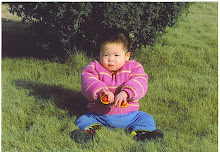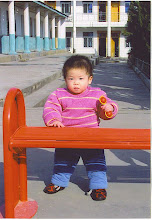I love you, the three most powerful words in the English language. At least that’s what I thought in first grade when I printed them carefully on a page from my Big Chief tablet. The note was to Nancy, the most beautiful girl I had ever seen in all of my six years of experience. I really thought that the words would have some kind of magical effect on her. I felt that surely she would be overwhelmed with my profession of love, though I really had no idea where it would lead. I suppose I expected her to come to me after class and say that she loved me too, or at least liked me. “Like” was the word that kids our age usually said, but I loved her.
I came back from recess early, grabbed the already printed page from my tablet and placed in squarely on her desk. I was already in my seat when the rest of the class started walking in and I watched Nancy sit down. I was almost breathless with anticipation as I saw her pick up the paper that said, “Dear Nancy, I love you, Ronnie”. Even from four rows behind her, I could tell that she was visibly moved as she read the note. She looked left and right, and then back toward me with disgust. As she tore the paper into several pieces, it began to dawn on me that she might not love me; she might even not like me at all.
It took a while to fall out of love with Nancy, maybe a week or more. I decided to be more cautious with my professions of love after that, even though at any given time, I was nearly always in love with one girl or another. I determined to look for signs that they loved me before I stuck my neck out again, and as luck would have it in the next several years, I got those signs every so often, but it never happened to be from whichever girl I was smitten with at the time. I was twenty years old when I finally felt a love so strong that I would risk saying those three words again, no matter the risk to my pride, and that time the girl responded. It was magical, just like I thought it was supposed to be, and we kissed, and went steady, got engaged, and then got married. We’re still married after thirty three years, and I still say “I love you” several times a day.
Looking back, I have considered what made me want to use the word “love” in my childish infatuation. The only answer has to be the way the word was used in my family, which was often and sincerely. My Mom and Dad told me and my sister often that they loved us. It was freely used. It happened at bedtime, it was said when we were leaving for school, or getting out of the car at school. My Dad insisted on kissing me goodbye and saying, “I love you” each time he dropped me off at school. Finally in about the third grade, I got Dad to agree to give the hug and kiss goodbye a few blocks before we got to school, so I wouldn’t look like a baby in front of the other kids. Of course, my parents’ love was demonstrated in unselfish devotion to us, not just verbally.
Becky and I have carried that tradition on with our children, and now with our grandchildren. We believe that children should hear those three words daily, spoken to them, and hearing them being spoken from Dad to Mom and vice versa. I am more firmly convinced now than I was at six years of age that those words have almost magical power. Actually, now I know that the power in those words is spiritual power, and spiritual power affects everything that we are and what we will become.
I am amazed at people who seem to have difficulty saying the words, “I love you.” I had a Sunday School teacher once who said that saying, “I love you” all of the time was silly, and that it cheapened the expression when overused. He explained that he didn’t say it that often at home, because his wife and children knew that he loved them, without him having to say it again and again. I left the class wondering if maybe I was overusing the expression myself. About a year later, after apparently having an extramarital affair, that teacher left his wife and family, and the church. Now, I recommend that Dads say the three words often. I have found, and I believe that the holy scriptures agree that there is power in the words we speak. The book of Proverbs says that out of the abundance of the heart, the mouth speaks. Therefore if we have love in our hearts we will speak it, and if we are not speaking it, we need to examine our hearts. In the letter to the Romans it says that the word of faith is near us, even in our mouth and in our heart, and that it is by confessing with our mouth the lordship of Christ, which we believe in our heart that brings salvation. I believe that the more we speak words of love, the more we will live out that love. There is power in the words we speak.
Also, the bible tells us that faith comes by hearing. When our children, or our spouse hear us say, “I love you” it strengthens their faith in our love. The most important concept that a child can have is that of unconditional love from their parents. The certainty that they are loved, even when they are disobedient, even when they are not the smartest kid in class, or the most athletic, or talented, yet that their parent loves them no strings attached, is a lifegiving force in the child, making them strong spiritually and emotionally. Saying “I love you” to a growing child is as crucial to their well being as water is to a plant.
I’m already practicing saying those three magic words to our daughter from China. I don’t worry anymore about overusing them, and I can hardly wait for the day when I hear her say five magic words to me, “I love you too, Dad.”
Ronnie
Monday, January 1, 2007
Subscribe to:
Post Comments (Atom)










No comments:
Post a Comment